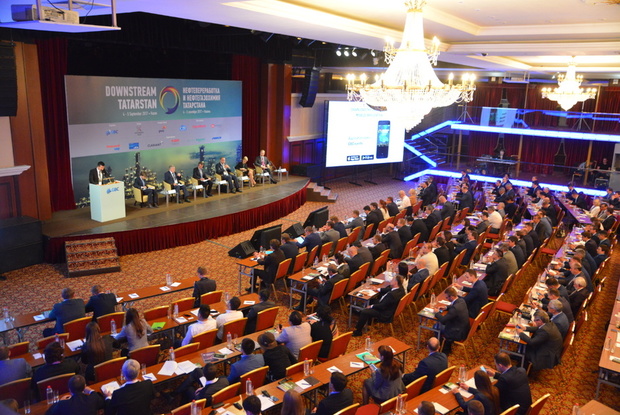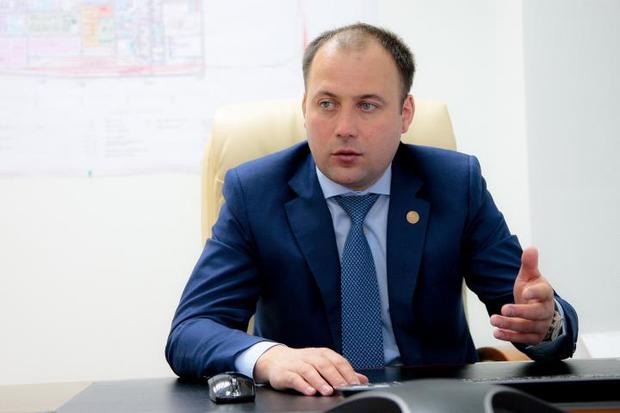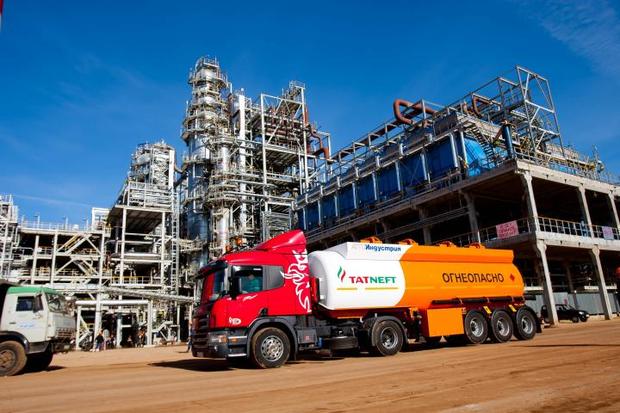Nail Maganov aims at heavy oil residue conversion
TANECO promises to start production of Euro 5 motor gasoline in 2018
Next year, the refining and petrochemical plants complex of Tatneft will receive for refining 14 million tonnes instead of previous 7 million tonnes. According to the company's assessment, after the opening of the second phase the integral budgetary effect will amount to 2,8 billion rubles, reported deputy director general for technical support and quality at TANECO Ilshat Salakhov. However, he made an important remark – before 2030. By that moment, oilmen want to ramp up oil production up to 35 million tonnes a year, and that means that the third in a row increase in capacity awaits TANECO. Read the details in the material of Realnoe Vremya.
At the international conference ''Refining and Petrochemistry of Tatarstan'', the leadership of TANECO proclaimed the updated concept of modernisation of the refining and petrochemical plants of Tatneft. Despite that, among the audience there was director general of TANECO Leonid Alyokhin, the main speaker and central figure of the Tatarstan company at the forum was deputy director general for technical support and quality of TANECO Ilshat Salakhov. He was entrusted to present the construction programme of the heavy residue conversion project.
First litres of Euro 5 gasoline from TANECO
The main news in his speech was the fact that the transfer to the new level of Tatarstan oil refining at 14 million tonnes instead of previous 7 million tonnes will take place in due course in 2018. ''Along with the launch of the plant ELOU-AVT-6, it is planned the introduction of the second stage of TANECO with oil refining increase up to 14 million tonnes a year,'' he said. In the result, the nomenclature of the refinery will expand to 22 kinds of oil products. Omitting technical details, the peak of modernisation will be the long-awaited launch of own motor gasolines. It is expected that by 2020 TANECO will be able to produce 1,72 million tonnes of gasoline, and by 2025 – 3,06 million tonnes.
At the level of refining of 7 million tonnes of oil, TANECO produces only 1,35 million tonnes of diesel fuel. This kind of fuel dominates at Tatarstan refineries for now, the production of which will increase annually. It is expected that by 2020 the production of diesel fuel in Tatarstan will be surplus. By that time, TANECO and TAIF-NK will be able to produce 6,79 million tonnes of diesel fuel, while current capacities of the two plants of TAIF-NK and TANECO will allow to produce 3,67 million tonnes of diesel fuel: TAIF-NK – 2,32 million tonnes, TANECO – 1,35 million tonnes. By 2020, it is forecasted a growth to 4,04 and 2,75 million tonnes respectively.

From next year, in the updated architecture of the project TANECO will be able to start production of motor gasoline of various standards, including the highest ecological standard Euro-5.
''In 2018, it is planned to launch the catalytic reforming unit with continuous catalyst regeneration. This will allow to start the production of the motor gasoline of Euro 5 standard,'' Ilshat Salakhov named the first step of TANECO towards the gasolines. ''In 2019, it is planned to launch the unit of fluid catalytic cracking, which will allow to ramp up the production of Euro 5 motor gasoline up to 1,7 million tonnes a year.''
It will be not the first project in Tatarstan: the oil refining company TAIF-NK started the production of the fuel of Euro 5 standard at the end of the autumn in 2015.
According to Ilshat Salakhov, this year it is planned to start a complex testing of the unit of hydrotreater of diesel fuel, kerosene, isomerization. ''This will allow to ramp up the production of aviation kerosene up to 950,000 tonnes a year and Euro 5 diesel fuel up to 3 million tonnes a year.'' The integral budgetary effect will be almost 2,8 billion rubles, reported deputy director general for technical support and quality of TANECO Ilshat Salakhov.
''While there is the ''customs subsidy'' due to the difference between export duty on crude and oil products, many refineries in Russia continue to update, which ramps up competiveness on regional Russian markets of oil products,'' director for business development at VYGON Consulting Anton Rubtsov said to Realnoe Vremya. ''The plant TANECO has an advantage as it is provided with raw materials base and aimed at realising of motor fuels through Tatneft fuel stations. The necessary level of capacity load for primary crude oil processing will depend on many factors – from the level of European margin to the capacities for the use of naptha for petrochemistry.''

Gazprom neftekhim Salavat will wait
For the processing of heavy oil residue, TANECO plans to launch an experimental-industrial unit of tar hydroconversion. According to deputy director general for strategic development of ONH-Holding Valeriya Kuznetsova, for the end of July – the beginning of August it was contacted 98% of equipment for the unit, 80% of them were supplied to the site. ''In 2018 we hope to launch the unit and to start full-scale works for tar processing and the technology implementation,'' he noted. ''Intermediate results give optimism.''
According to him, the chosen technology looks promising, some technical solutions they had to develop from scratch, ''the emphasis was put on domestic equipment''.
The top management of Gazprom neftekhim Salavat admitted that they follow the project with great interest. ''If it works out – the project for conversion of heavy oil at 50,000 tonnes, we will adopt it from the partners. But it is a prospect for the next 2-3 years. Now the oil refinery efficiency is 82% as heavy residues are not processed,'' said the interlocutor of Realnoe Vremya. Now the project is being implemented on the funds of Tatneft on the site of TANECO, the exact amount is not announced. The benchmark data were prepared by A.V. Topchiev Institute of Petrochemical Synthesis at the Russian Academy of Science, the project and detailed documentation were elaborated by VNIPIneft.
In 2015, the project passed the State Expert Review. At the end of the same year, at a panel of the Ministry of Energy it was decided to assign it a national status, which gives the company the opportunity to claim preferences from the government. The ministry came to conclusion then that no less than nine Russian refineries are interested in introduction of the technology of hydroconversion.
Tatneft aims at 35 million tonnes
The modernisation of TANECO is synchronised with the plans of Tatneft to rump up the oil production by 2025 up to 35 million tonnes a year.

''Despite external factors, in order to ensure a growth of the cost of the group Tatneft and high dynamics of overall shareholders' benefit, they continue work of defining new objectives and promising projects, including ramping up of oil volume production with reaching the level no less than 35 million tonnes a year, development of petrochemistry direction, improving of dividend policy,'' said in the message of Tatneft.
As the company notes, the actualised strategy of Tatneft development will be submitted for consideration by the board of the company by the summer in 2018. We will remind that in 2016 Tatneft produced 28,7 million tonnes, in 2017 it aims at 29,8 million tonnes.